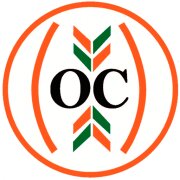Best Civil & Human Rights Lawyers in Port Moresby
Share your needs with us, get contacted by law firms.
Free. Takes 2 min.
List of the best lawyers in Port Moresby, Papua New Guinea
About Civil & Human Rights Law in Port Moresby, Papua New Guinea
Port Moresby, Papua New Guinea's capital, takes into consideration the significance of civil and human rights law. The Constitution of Papua New Guinea, enacted in 1975, guarantees a wide range of human rights. Despite the constitutional provisions, the enforcement of these rights often falls short, due to factors such as lack of public awareness, inadequate legal support, societal norms, and financial constraints.
Why You May Need a Lawyer
Lawyers play a crucial role in advocating for civil and human rights. They can help you to understand these rights, how to exercise them, and to challenge any infringements. You may need a lawyer if you have been treated unfairly due to your race, gender, age, disability, religion, or sexual orientation. Likewise, if you have suffered from police brutality, experienced restrictions on freedom of expression or assembly, been denied access to public services, or been a victim of human trafficking, a lawyer with a focus on Civil & Human Rights can provide necessary legal help.
Local Laws Overview
The Constitution of Papua New Guinea recognises and protects several fundamental rights and freedoms, which include the right to life, personal liberty, freedom from inhuman treatment, freedom of conscience, expression, assembly, association, and employment. It also adopts a broad non-discrimination clause. However, there are ongoing challenges, particularly relating to gender-based violence, children's rights, rights of persons with disabilities, and LGBT rights. Understanding these local laws is crucial in identifying violations and seeking redress.
Frequently Asked Questions
What are my basic rights according to Papua New Guinea's constitution?
Your basic rights, according to the Constitution, include the right to life, personal liberty, freedom from inhuman treatment, freedom of conscience, expression, assembly, association, and employment, amongst others.
What can I do if my rights are violated?
If your rights are violated, you can engage a lawyer to guide you through the process of filing a legal complaint, or contact a human rights organisation for assistance. Groups like the PNG Human Rights Advocacy Centre (See Additional Resources section) can be particularly helpful in these situations.
Are there groups that are particularly at risk of rights violations in Papua New Guinea?
Persons with disabilities, children, women, and LGBT persons often face serious civil and human rights challenges in Papua New Guinea.
Are there specific laws protecting the rights of children and women?
There are specific laws and policies aimed at protecting children and women, including the Lukautim Pikinini (Child Protection) Act and the Family Protection Act that targets domestic violence, but enforcement is generally weak.
Does Papua New Guinea have anti-discrimination laws?
Papua New Guinea's constitution has a broad non-discrimination clause that forbids discrimination on the basis of race, tribe, place of origin, political opinion, color, creed, or sex. Despite this, societal discrimination remains an issue.
Additional Resources
The PNG Human Rights Advocacy Centre, the PNG Public Solicitor's Office, and the Ombudsman Commission of Papua New Guinea are key local organisations focused on protecting and promoting civil and human rights. On a global scale, Amnesty International and Human Rights Watch also provide resources and support for victims of human rights abuses in Papua New Guinea.
Next Steps
If you believe your civil and human rights have been violated in Port Moresby, here are initial steps you can take. First, document all elements of the incident, noting dates, times, locations, and any potential witnesses. Contact a local lawyer specialized in civil and human right cases or one of the human rights organisations mentioned above. If the police are involved in your case, you may also want to file an official complaint with the Ombudsman Commission. It’s important to remember that legal processes can take time, but seeking advice and starting the process are vital first steps.
Lawzana helps you find the best lawyers and law firms in Port Moresby through a curated and pre-screened list of qualified legal professionals. Our platform offers rankings and detailed profiles of attorneys and law firms, allowing you to compare based on practice areas, including Civil & Human Rights, experience, and client feedback.
Each profile includes a description of the firm's areas of practice, client reviews, team members and partners, year of establishment, spoken languages, office locations, contact information, social media presence, and any published articles or resources. Most firms on our platform speak English and are experienced in both local and international legal matters.
Get a quote from top-rated law firms in Port Moresby, Papua New Guinea — quickly, securely, and without unnecessary hassle.
Disclaimer:
The information provided on this page is for general informational purposes only and does not constitute legal advice. While we strive to ensure the accuracy and relevance of the content, legal information may change over time, and interpretations of the law can vary. You should always consult with a qualified legal professional for advice specific to your situation.
We disclaim all liability for actions taken or not taken based on the content of this page. If you believe any information is incorrect or outdated, please contact us, and we will review and update it where appropriate.
Browse civil & human rights law firms by service in Port Moresby, Papua New Guinea
Port Moresby, Papua New Guinea Attorneys in related practice areas.










